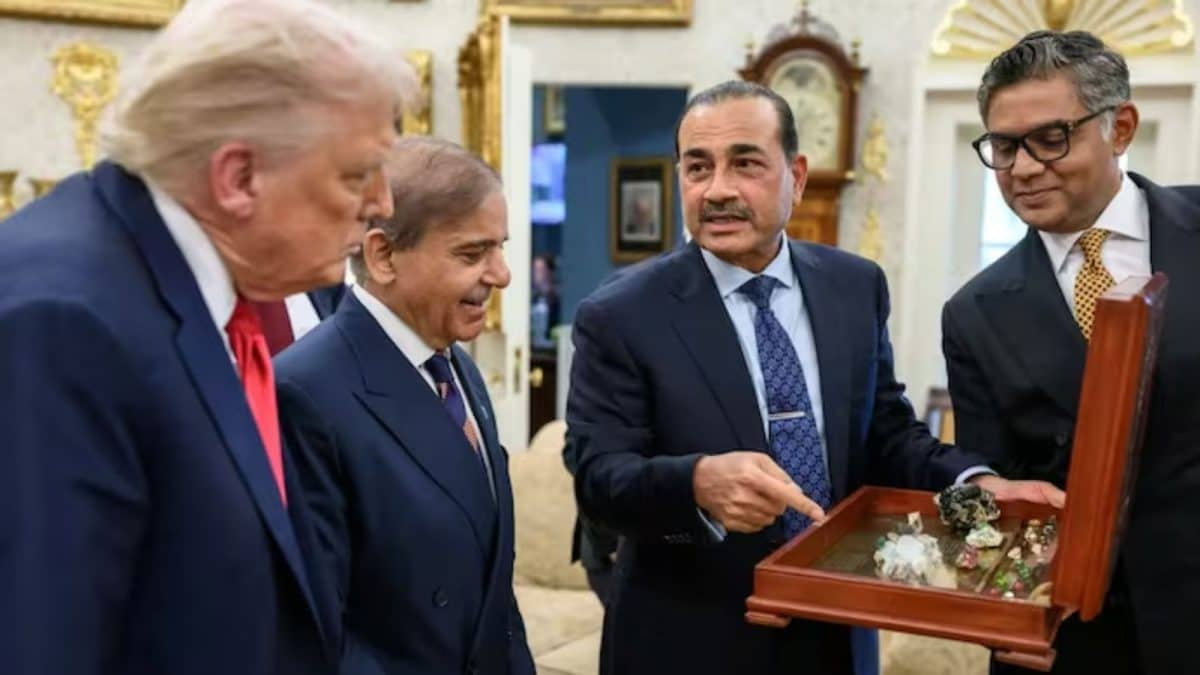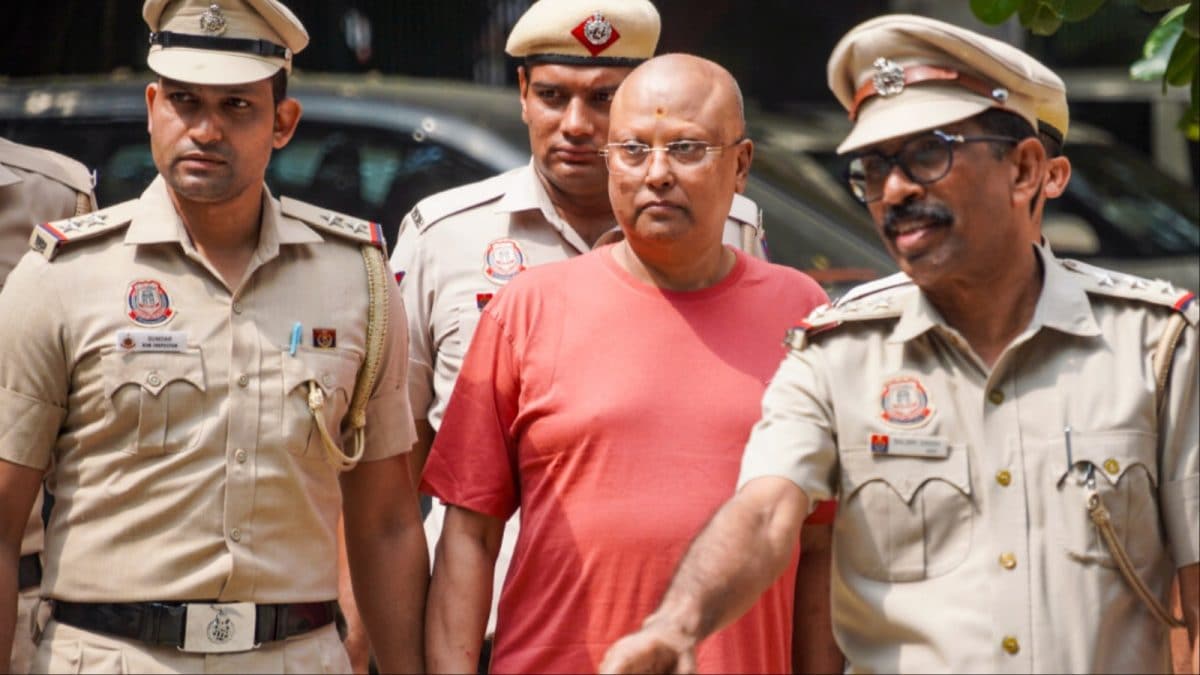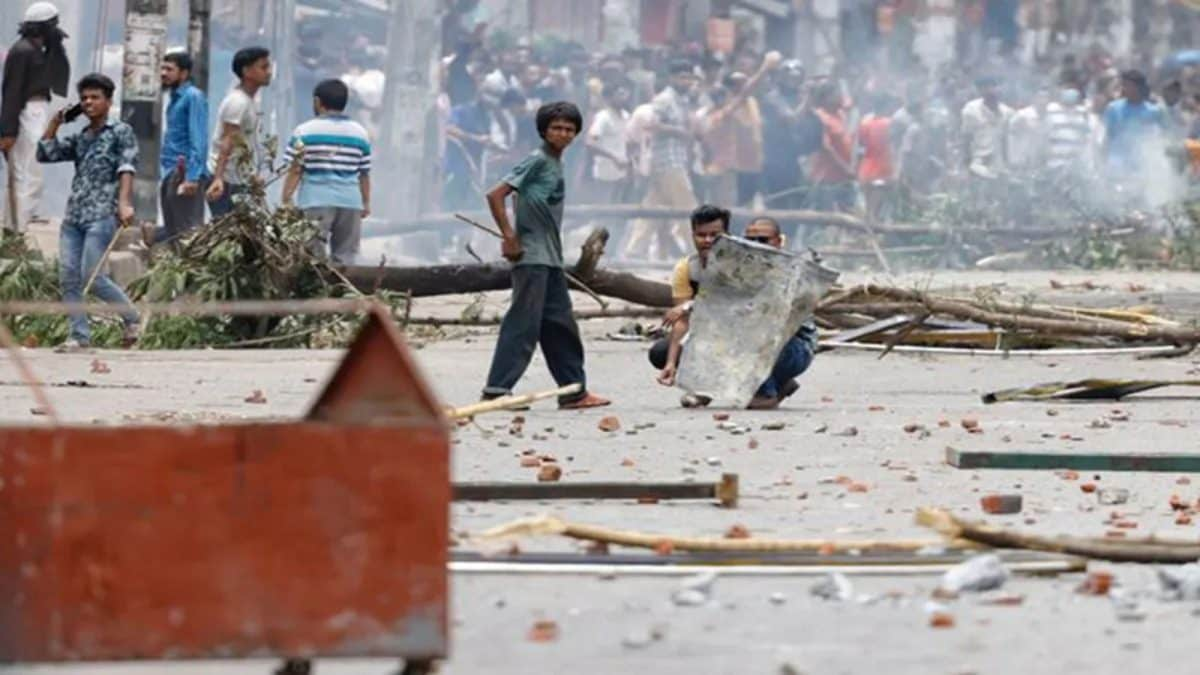Last Updated:
Known for valuing flashy optics and tangible deals, Trump was shown something he could see, hold, and potentially boast about.

Pakistani Army Chief Asim Munir showing a wooden box purportedly containing rare earth minerals to Trump | Image: X
An intelligence assessment note decoding Pakistan’s latest diplomatic manoeuvre in Washington, where rare earth minerals have been deployed as a bargaining chip with the United States, has been accessed by CNN-News18. According to top security and intelligence sources, the optics surrounding Pakistan’s Field Marshal Asim Munir’s presentation of “rare earth precious metals and stones” to US President Donald Trump at the White House were no ordinary gift exchange. Instead, it was a carefully calibrated signal of Islamabad’s intent to leverage its mineral wealth for long-term strategic and economic partnership with Washington.
The meeting took place on Thursday at the Oval Office, with Pakistan Prime Minister Shehbaz Sharif and Field Marshal Munir representing Pakistan’s delegation. The moment President Trump warmly shook hands with the Pakistani leadership, sources described it as a “Strategic Handshake,” marking a new phase of engagement between the two countries. President Trump had earlier hailed Shehbaz Sharif and Asim Munir as “great leader, great guy,” underlining the cordial optics of the encounter.
Recommended Stories
The rare earth samples presented to Trump were drawn from Pakistan’s vast mineral reserves, which are estimated by multiple assessments to be worth $6 trillion. Intelligence officials emphasise that this gesture was designed to appeal directly to Trump’s deal-making instincts. Known for valuing flashy optics and tangible deals, the US President was shown something he could see, hold, and potentially boast about, rather than being engaged in abstract diplomatic rhetoric.
Field Marshal Munir’s decision to personally hand over the stones, rather than delegating the task to Pakistan’s trade minister or civilian officials, carries heavy symbolism. It signals that Islamabad views the rare earth sector not merely as an economic project but as a strategic-military domain. The involvement of the Pakistan Army’s commercial arm, the Frontier Works Organization (FWO), in mining concessions underlines this point. According to intelligence sources, Munir’s move also serves as a guarantee to prospective US investors that the military itself will provide protection and oversight for any American entry into Pakistan’s mining sector.
The gesture comes against the backdrop of Pakistan’s economic distress. With the economy under severe stress, IMF lending conditions tightening, and China reaping the lion’s share of benefits from projects under the China-Pakistan Economic Corridor (CPEC), Islamabad is seeking new leverage. By showcasing its rare earth wealth —critical for US defence systems, electric vehicles, and semiconductor manufacturing — Pakistan is telling Washington it has something far beyond its traditional role as a security ally to offer.
Sources say the message was also multidirectional. By doing this in Washington rather than Beijing or Riyadh, Pakistan signalled to Gulf monarchies that it is diversifying its patronage and external partnerships. Simultaneously, it was a subtle nudge to India, which is working with Quad partners to secure supply chains for critical minerals. Pakistan, through Munir’s performance in the Oval Office, is now inserting itself into that same strategic conversation.
The US interest appears real. Recently, Islamabad signed a $500 million memorandum of understanding with American firm US Strategic Metals (USSM). Top sources interpret this as an early indicator that Washington is willing to explore Pakistan’s resource potential more seriously.
For Pakistan, the move was also about optics. Intelligence assessments stress that Trump’s warm reception, his public praise for the Pakistani leadership, and the presentation of stones all add up to a narrative Islamabad can project at home — that it is moving towards a “long-term strategic plus economic partnership” with the United States.
In essence, by turning rare earth minerals into a tool of diplomacy, Pakistan is repositioning itself. Intelligence officials conclude that the optics of Field Marshal Munir personally offering the samples demonstrate Pakistan’s belief that its critical minerals are not just economic assets but national security assets. And by staging this in Washington, Islamabad has made its strategic intent crystal clear.
About the Author

Group Editor, Investigations & Security Affairs, Network18
Group Editor, Investigations & Security Affairs, Network18
September 29, 2025, 12:21 IST
Loading comments…
Read More



